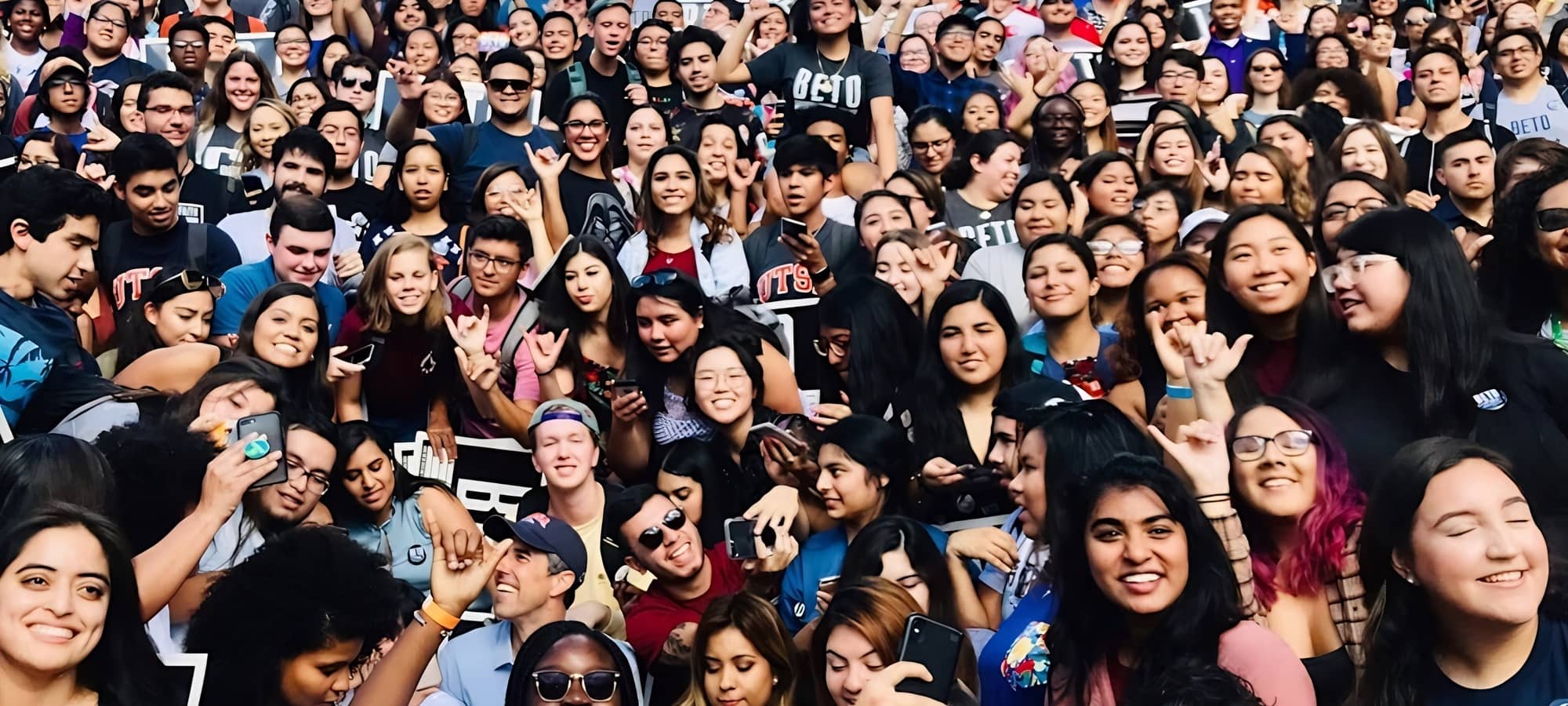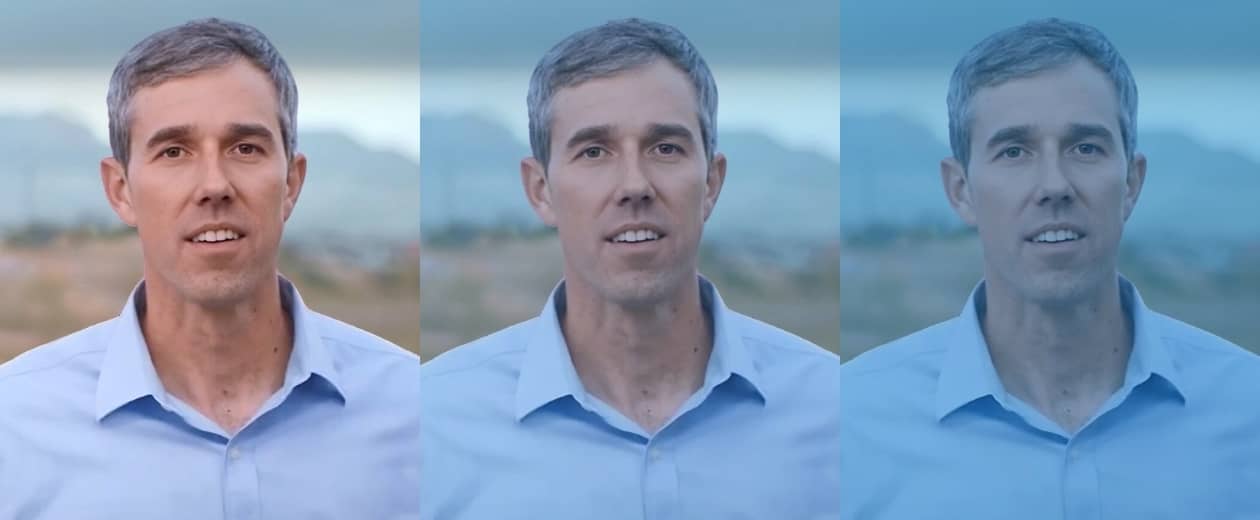I’m Beto O’Rourke, a fourth-generation Texan, born and raised in El Paso where I have served as a small business owner, a city council representative and a member of Congress.
I’ve gone everywhere I could across Texas in the last seven years, making sure that I’m looking for the common ground that can bring Americans everywhere back together.
Join me live and online on Wednesday, May 22 and discover the Five Things I’ve Learned about America during this time:
- We are always becoming a democracy.
I used to understand democracy as a structure of government established at America’s founding, with mechanisms that have been variously defended, attacked, or improved over the subsequent centuries. I now understand it to be much more of a living creation, or the sum of the actions of its citizenry on any given day. The institutions are elegant, but the degree they are democratic is rooted in the character and choices of those who populate them.
America almost had a redeeming Federal Election Law passed in 1890 that would have overcome the collapse of voting rights after Reconstruction, but special interests killed it and left us in something far less than a democracy for nearly eight decades. That is part of our story. But so is the way in which courageous civil and voting rights leaders built the power to ultimately make things right, culminating in the Voting Rights Act of 1975.
Democracy is constantly in creation (or in destruction) by the people who participate in it. We can’t know the ultimate timeline or outcome of a given action, but the choice to act itself is a choice for democracy. I have learned that the American system of government is not a fixed relic handed carefully down, but a live question in our hands each day.
- Our shared history is our shared power.
This is what I learned when I studied the buried stories of America’s best and worst. History holds twin gifts: First, from any corner of America you can unearth the stories of courage and persistence from our predecessors, stories that show us how to be ordinary individuals who triumph. Second, from history we gain the advantage of recognition: once you learn the ways people in power have tried to hold on to it, you’re not confused when the same tricks of oppression show up in new forms.
Researching the lynching of black poll workers for defending the vote in 1886, I gained an eye for the ugliest, most brutal, and most conniving of injustices imposed by people in power against an expanding electorate. Internalizing history like this means that we are not confused when a diverse county of 4.7M voters (Harris) is cut by the Governor of Texas down to a single ballot drop box, for example, or when a student I.D. is not sufficient to vote, but a gun license is.
On the flip side, it is from the lives of ordinary extraordinary leaders like El Paso’s Dr. Lawrence Nixon that I have learned what it looks like to be a persistent and courageous American. The good doctor showed up to vote in defiance of a Texas-wide “whites-only” primary law in 1924, and persisted for 20 years before victory in court was achieved. He did so because, as he said at each election day, “I’ve got to try.” Nixon and others can show us how to recognize and cultivate the courage, clarity, and patience we need in ourselves to challenge anti-democratic forces, and to persist.
Only abusers of power wish to bury histories of the abuse of power. Only entrenched interests on the defense wish to bury stories of a triumphant resistance. In the words of Milan Kundera, “the struggle of man against power is the struggle of memory, against forgetting.” Against history’s backdrop of dark tactics on the one hand and tenacious courage on the other, I see our own role as heirs to the struggle in bright relief. The bad actors are playing their usual parts and their methods are familiar. The call to step onto the valiant path marked by the Lawrence Nixons, the Reginald Moores, the Bert Williams – is clear. What was long buried alongside their stories was my city’s own identity and strength as a civil rights battleground. The gift of history is that in their power we can see our own.
- Language is a powerful force.
I have learned to respect the power of language in America. The ability of words to connect, to stir hope, and to drive good action has given me some of my greatest joy. Listening to the stories of the people I have met over thousands of gatherings and doorsteps has given me a deeper life education than any library or university.
I learned that before 1912, the brutality of convict leasing (slavery by another name) persisted in Texas. The sugarcane interests that benefitted were able to bury efforts to stop it for decades. It was when a young reporter named George Waverley Briggs published “a series of sensational stories” that were read across the state that public pressure grew and legislators were both required and able to end it. Publishing the truth when the powerful demand silence has the force to free people, save lives, and change history.
There is a world of horrific division in language, too, one that has turned to vile action too many times. Words became a bloody slaughter in El Paso in 2019, when a gunman quoting phrases from the most powerful men in the country shot 23 people to death during back-to-school shopping at our Walmart. The violence of words that hide behind free speech and “oh that’s just rhetoric, it’s just politics,” has flipped to bloody action in America too many times. Pretending that words have no danger when we have seen hate and threats turn to death is a blindness. Just as presuming that silence is neutral, when we know a few words of courage can break the spell of inaction and inspire change, is no longer honest.
- ACTION is the antidote to despair, and the key to victory.
There is only so much news about America that I can take in before I need to act, or look away. Watching in stillness is the express train to despair. The moment I get moving, with actions large or small, I am back in company with those who have worked toward the ideal of this country before us. I am back in company with the multitudes of Americans spurred by the same values to work and speak, serve and donate, lead and follow for the ongoing right to freedom and democracy.
The happiest people I know are the ones most in the thick of it. If you want cheerful, look for an organizer! There is something so instantaneously different about the state of the world when you’re registering even one new voter, having a tough but civil conversation about things that matter, or helping boost more good people into positions of public service and power.
I have also learned that our thousands of small actions do add up to victories. You don’t always know at the start what the timeline or outcomes will be, and the actions can feel puny at first. But again and again, we see the results of sustained persistent action. Civil rights. Voting rights. Marriage equality. These only happen when everyday people choose to act, and to act without knowing when (or even if) their actions will result in victory.
- No victory is ever final. That means the fight is never over.
Whether it is the gutting of the Voting Rights Act in the Supreme Court’s 2013 Shelby decision or the overturning of Roe v Wade in their 2022 Dobbs decision, history makes clear that no victory – no matter how hard-won or justly decided – is ever final. In a democracy, any and every achievement can be taken back by those who are able to amass influence and political power.
That means that the fight is never over. We must commit ourselves to the work of winning and sustaining victories for as long as we live in this great democracy. The consequence of failing to accept this lesson is potentially to lose the very democracy that makes our victories possible.

